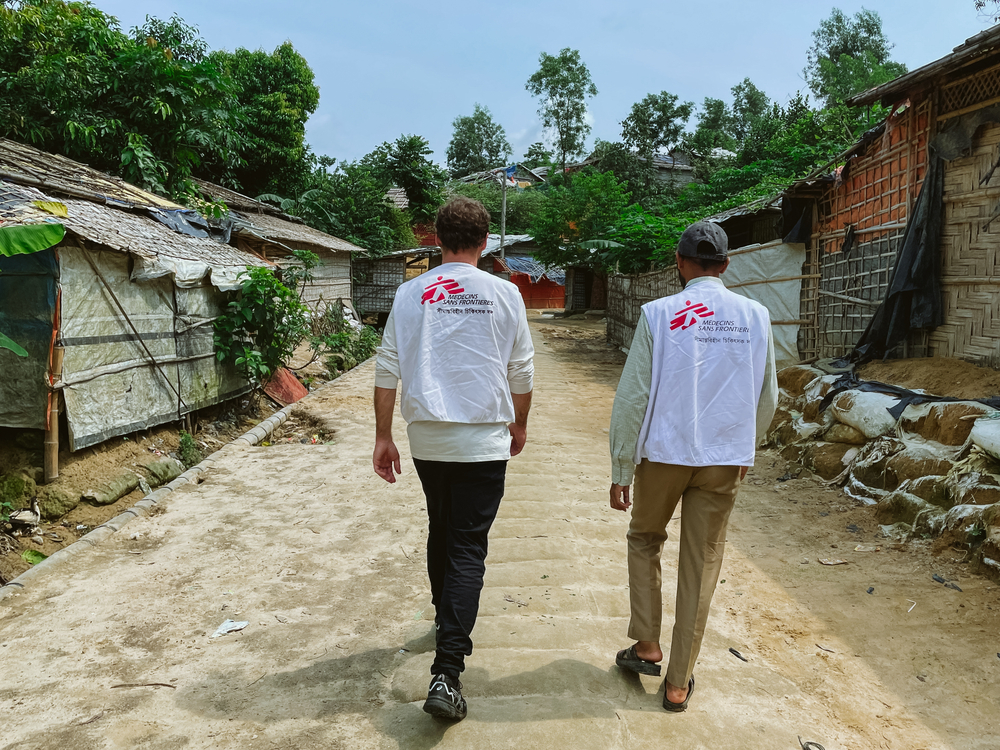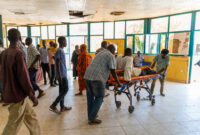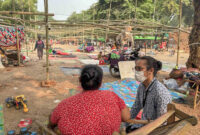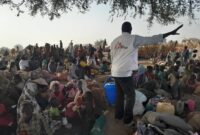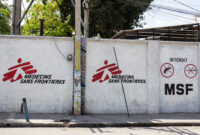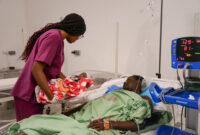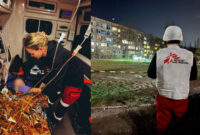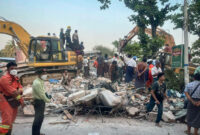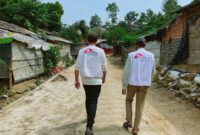Myanmar: 20 years of assistance to people living with HIV
By the end of 2023, people living with HIV in the care of MSF in Dawei will have transferred to the National Aids Programme, whereas MSF’s support will still remain
Doctors Without Borders/Médecins Sans Frontières (MSF) has been providing comprehensive HIV care in Dawei for two decades, including outreach programmes to prevent HIV infection in marginalized and at-risk people, such as migrant workers and people who inject drugs. In Myanmar, the HIV/AIDS epidemic wreaked havoc in the 2000, and people living with HIV have had great difficulty accessing treatment. The MSF clinic in Dawei was established to provide free treatment to give them hope of a better life.
By the end of 2023, patients receiving care in MSF’s HIV project in Dawei will transfer to the National Aids Programme (NAP) alongside MSF resources allocated to support this programme.
After being put on pause for the past two years, this handover marks progress towards the National Strategic Plan of transitioning HIV care to increased public sector management, especially with regards to antiretroviral therapy (ART). Nevertheless, many of the challenges resulting from the collapse of the public healthcare system in 2021, which delayed the handover, still remain.
Closing 20 years of MSF’s hands-on care to HIV patients in Dawei
Over the years, the Dawei project has supported people living with HIV in many ways, from testing and treatment to peer-to-peer support for managing the disease and handling the stigmatisation that many patients feel.
In 2020, just like the rest of the world, the project had to deal with Covid-19, leading to huge disruptions in treatment for people under care. Travel restrictions hit HIV patients in Dawei hard, as most people live in rural areas and a large number on islands along the coastline.
Ma Mi Mi remembers how “COVID-19 happened, and the ships did not run anymore, and I could not come back [to the clinic]. I couldn’t take my medicine for about three months.”
In January 2021, MSF began transferring patients into the NAP for treatment. Two months later, Myanmar faced political upheaval when the military replaced the elected government. In response to this takeover healthcare workers across Myanmar went on strike. While the public healthcare system was already in the grip of major staffing challenges, the lack of public spending along with importation blockages also added to the healthcare shortfalls in Myanmar.
The transfer out was put on hold and MSF began to register new patients in our Dawei HIV programme for the first time since 2019. Just a few months later, in June, MSF teams in Dawei received a letter from the regional authorities asking us to suspend all activities. At that time, the Dawei clinic was administering ART to 2,162 people living with HIV. Although MSF managed to restart after a two-week pause, the suspension curtailed the support from other international and local non-governmental organizations for the communities in this district area.
This year, MSF resumed the handover of HIV patients to the NAP which is once again able to provide ART. However, MSF remains committed, and from 2024, it will work in a Support Model alongside NAP. In Dawei, all patients will complete their transfer by the end of 2023. This marks a huge step in the right direction and the hope is that with the NAP functioning, patients will not have to travel so far to reach a clinic, making adherence to treatment far easier.
Receiving HIV treatment in Myanmar
For Gay Gay*, who is living with HIV, the availability of clinics has always been one of the most difficult things to manage.
“When I was young and first found out about this disease, I had to deal with a lot of difficulties since there were no clinics or hospitals to go to and receive any treatment. I had to go to another village to receive treatment. I came back to Dawei because the treatment I was receiving was not effective and did not show any good results.”
“When I came back to Dawei, I knew of Myittaryeik clinic from MSF, but they didn’t have a fixed clinic then. The doctors were only paying a visit to patients’ houses to provide medical care. Over time, I got closer with the doctors and nurses, and I received quality medicines and medical care and have been feeling healthy since.”
“It was difficult to receive medical treatment before since there was only Myittaryeik clinic, but that’s not the case anymore now. There are other clinics available now. And I can also go to other cities outside of Dawei to receive treatment, be it in Yangon or Mandalay.”
“I took my first medication since I was 13 and moved to Yangon for high school education. During that time, I have been receiving treatment in Yangon for eight consecutive years.”
“Patients living with HIV who are receiving treatments can improve their health and live a normal life just like anybody else. Things have changed now in terms of perceptions of people living with HIV. Receiving proper medical care was challenging before but all of that has changed now because of the availability of more clinics and hospitals providing testing and treatment. It’s easier to go to the clinics and receive treatment now.”
“[Even so] there are a range of challenges living life as an HIV-positive person in Myanmar. Some struggle to make a proper living or livelihood due to their family situations while also taking into consideration transportation when going to clinics.”
The transfer-out and reshaping the project
This time around, the transfer-out looks a little different than the initial handover that was stopped in 2021. Many of the gaps in the public healthcare system remain, particularly in terms of staffing. With limited water and sanitation resources clinics struggle to operate smoothly, despite the support provided by organisations such as MSF.
The population in Dawei is made up of many migrants who work away for long periods of time, like Ko Maung Myint*, who works on a deep-sea fishing operation in Kawthaung.
“In the past, I could get six months’ worth of medicine at a time so that I could work five months away and come back here for one month. I have to travel for work so the National Aids Programme is not convenient for me as it only provides two months.”
Without enough medication, patients will have to return to clinic sites again and again. Movement in many parts of Tanintharyi and in Myanmar is currently very difficult and dangerous, and violent conflict is on the rise again. Healthcare workers and facilities have consistently been targeted in Myanmar. Over 1000 attacks on healthcare have been reported since the coup. [1]
While the NAP is improving, and support from organisations like MSF is assisting in this, the context in Myanmar has a heavy impact on HIV patients.
Without unimpeded supply lines for everyone, including the public system, and without the mobilisation of all the medical resources available in and around Dawei, people on HIV treatment will continue to be affected by a lack of regular medication.
MSF welcomes the chance to continue supporting the NAP clinics to ensure quality of care for HIV patients in Myanmar.
[1] Source : Insecurity Insight: https://reliefweb.int/report/myanmar/tragic-milestone-more-1000-attacks-health-care-myanmar-february-2021-military-coup
